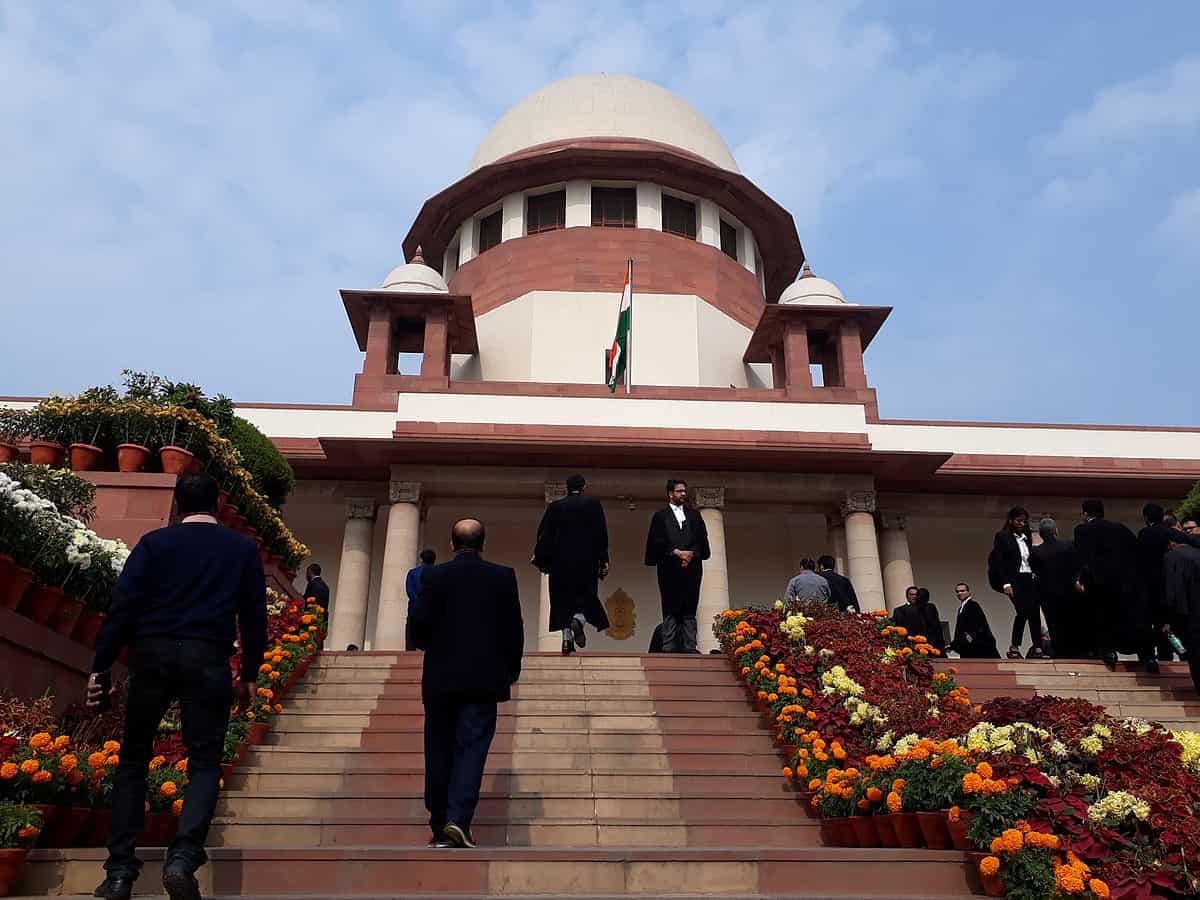
New Delhi: The Supreme Court on Wednesday declined to grant an urgent hearing on a plea challenging the Karnataka High Court order, which dismissed all petitions seeking direction for permission to wear hijab in classrooms and held that wearing of hijab by Muslim women does not form a part of essential religious practice in Islamic faith.
Senior advocate Sanjay Hedge, representing the petitioners, mentioned the plea before a bench headed by Chief Justice N.V. Ramana. Hedge said there is urgency in the matter, as several girls have to appear in exams. The bench, also comprising Justices A.S. Bopanna and Hima Kohli, said others have also mentioned and the court will look into the matter.
Hedge insisted that exams are starting and there is urgency in the matter.
The bench said it needs time and it will post the matter for hearing. After brief submissions, the bench said the court may list it after Holi vacations. “Give us time, we’ll post the matter”, said the bench.
The plea filed through advocate Adeel Ahmed and Rahamathullah Kothwal said the high court order creates an unreasonable classification between the non-Muslim female students and the Muslim female students and thereby is in straight violation of the concept of secularism which forms the basic structure of the Indian Constitution. The petitioners are Mohamed Arif Jameel and others.
The plea said: “The impugned order is also in sheer violation of the Article 14, 15, 19, 21 and 25 of the Indian Constitution and also violates the core principles of the International Conventions that India is a signatory to.”.
It further added, “Being aggrieved by the impugned Government Order, as it is in violation of Indian constitution, the petitioner had approached the Hon’ble High Court by way of a Public Interest Litigation (PIL) Petition challenging the validity of the same.
“The High Court vide the impugned order has sought to curtail the fundamental right of Muslim student-women by upholding the impugned Government Order which bars Muslim women from wearing the hijab and pursue their education. It is hereby submitted that the right to wear a hijab is an ‘essential religious practice’ and falls within the ambit of the right of expression guaranteed by Article 19 (1) (a), the right to privacy and also the Freedom of Conscience under Article 25 of the Constitution. The same cannot be infringed upon without a valid ‘law’.”
Another plea, filed by two Muslim students, Manan and Niba Naaz, through advocate Anas Tanwir, said: “The petitioners most humbly submit that the High Court has erred in creating a dichotomy of freedom of religion and freedom of conscience wherein the court has inferred that those who follow a religion cannot have the right to conscience.”
The plea contended that the high court failed to note that the Karnataka Education Act, 1983, and the Rules made there under, do not provide for any mandatory uniform to be worn by students.
